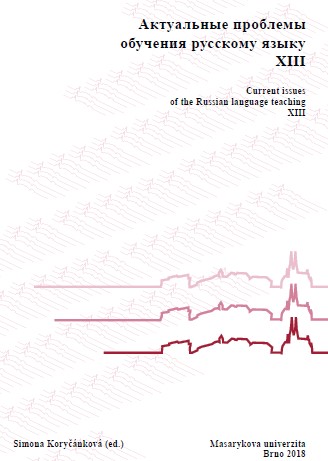СИНТЕЗ ИСКУССТВ В РУССКОЙ ЛИТЕРАТУРЕ 1990-х —2010-х гг.
SYNTHESIS OF ARTS IN RUSSIAN LITERATURE IN 1990s-2010s
Author(s): Irina Mineralova
Subject(s): Visual Arts, Russian Literature, Transformation Period (1990 - 2010), Theory of Literature
Published by: Masarykova univerzita nakladatelství
Keywords: synthesis; stylization; genre; style; literary painting;
Summary/Abstract: The phenomenon of “Synthesis of arts” being productive in Europe during the Romantic period bore completely unexpected fruit at the turn of XXth century. As a rule of thumb, periods of crisis and changes are destructive on different levels and “crave” (Vyach. Ivanov) for synthesis. The turn of XXIth age is not an exception. This article defines specific causes and conditions for calling synthesis into life (fictional, interliterary, particularly synthesis of genres, and, furthermore, convergence of journalism, philosophy, sociology and philology). In this sense the synthesis of music and fictional literature is extremely graphic, it can be seen in works of old masters of prose and popular poets who represents “author’s song” (Russian contemporary folk music) or rockmusicians and rock-poets. Also of a great importance are the new flash fiction and poetry of modern age answering on the questions of today. The synthesis of philosophy, sociology, journalism and pictorial art is the most graphic in artistic heritage of Alexander Zinoviev, who has no match in today’s generation. The study of “synthesis of arts” phenomenon and its use in individual style of contemporary authors is not only interesting, but also fresh and meaningful. This will be shown in the analysis of particular literary works of contemporary authors. The synthesis in contemporary Russian culture differs from what it was in the first third of XXth century. The change of “exchanging” and “storing” information format leads to the fictional product that often comes out to be a surrogate pleasing the lowest tastes, without any aesthetic value. The question of value is often about creating “reputation” determining commercial worth of the product and not about artistic evaluation.
Book: Актуальные проблемы обучения русскому языку XIII
- Page Range: 463-468
- Page Count: 6
- Publication Year: 2018
- Language: Russian
- Content File-PDF

